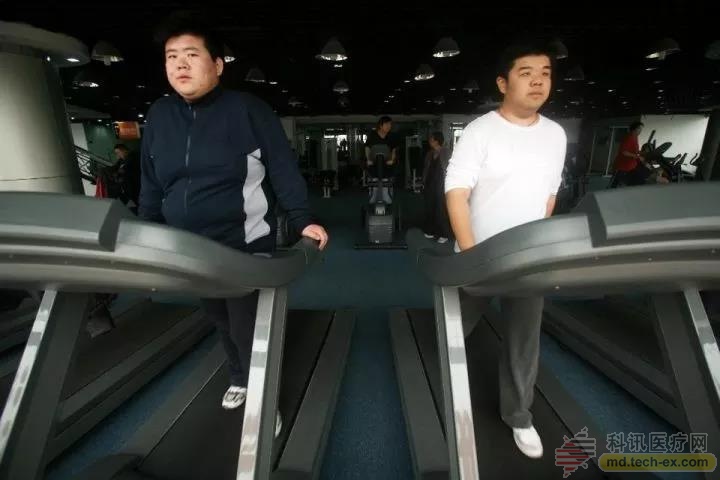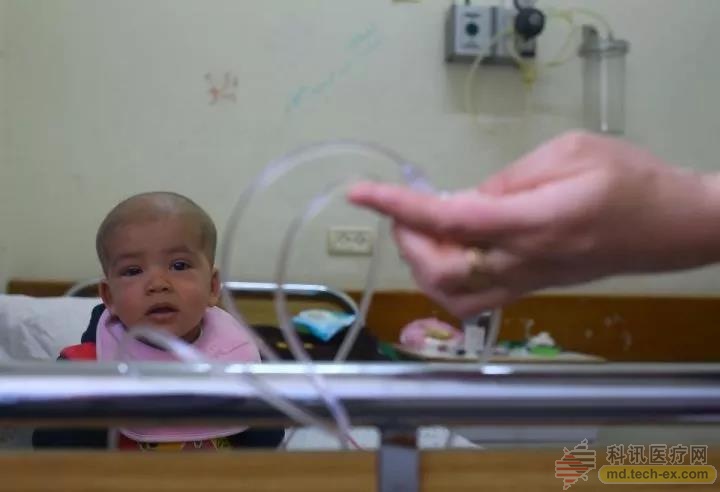Release date: 2017-10-16

With the development of scientific research and technology, there are continually emerging medical technology innovations. From artificial intelligence that predicts the patient's life cycle to the technology that can turn your skin cells into any organ – there are many ideas in the lab that can expand medical limitations and redefine public health strategies. However, unless your hobbies include extensive reading of scientific journals and technical reviews, it is easy to miss out on the most promising technologies in the medical and health fields.
So here are some of the latest breakthrough technologies that can change our perception of medicine and health.
1 “One-time healing†regenerative nanodevice
Imagine that you may lose a leg in a terrible accident. You are sent to the emergency room of the hospital. The doctor puts a small chip on your skin. Then, your skin cells are transformed into the necessary cells, cured and saved. That leg.
Thanks to researchers at Ohio State University for their tissue nanotransfections (TNT technology may turn this scene from science fiction to clinical reality.
The device consists of two parts: first, the nanochip – about the phone SIM card size, which is designed to pass biological instructions to the skin cells for reprogramming. The second part is the “goods†that it carries, which can guide your skin cells to transdifferentiate biological instructions. The "goods" are transferred to the cells by a weak electric shock that is barely noticeable.
The study used mice and pigs as subjects, and the researchers restored blood flow by switching their skin cells, thereby preserving a severely injured leg in the mouse. TNT can also be used to produce nerve cells that help mice recover from brain damage caused by stroke. The technology is scheduled to begin clinical trials next year, so please pay attention to the announcement of repairing damaged organs with nano-transfected skin cells.
2 nanoparticle boost micro-needle patch to burn fat against obesity 
Image source: Forbes
In addition to its application to regenerative medicine, nanotechnology is also being developed to treat obesity and diabetes – through “microneedle patches†that carry nanoparticles that promote fat burning.
Humans can store fat in the form of white or brown fat. White fat is suitable for long-term storage of energy, while brown fat is easier to burn. However, when we are adults, most of the fat we store is white fat. For a long time, people have been looking for drugs that can turn white fat into brown fat, but the problem is that these drugs can also cause side effects on other body parts, which means they are not suitable for systemic use by oral or injection.
Microneedle patches developed by researchers at Columbia University Medical Center provide controlled drug delivery, so only the desired area is affected. Once applied to the skin, the patch releases a "brown fat conversion" drug wrapped in the nanoparticles. Because these particles slowly dissolve when in contact with the body, the drug only directly affects the fat under the skin. The study published in the ACS Nano used obese mice as test subjects. After a week of treatment, they found that the target area was reduced by 20% fat, while lowering blood sugar levels, meaning that the technology could be used for the treatment of diabetes.
3 A technology that allows you to combine music with your heart
Have you read the book "Diving Bells and Butterflies"? The author of the book is an editor of a magazine. Due to an accident, he was completely paralyzed except for one eyelid. He wrote this book with his eyes as a means of communication.
Now imagine what it would be like if you could write a book with your mind or write the entire symphony.
Researchers at Graz University of Technology have used brain-computer interface technology or BCI technology to make this a reality. They named the app "brain composer", and with this app, people can create music by thinking. BCI technology seeks to replace and enhance everyday body functions through procedures controlled by brain waves. Essentially, they are applications that read brain waves and allow users to control external devices. They can replace or enhance everyday functions, enabling people with limited behavior to complete tasks ranging from writing letters (or books) to controlling exoskeletons and prostheses. 
Image source: Forbes
The study enrolled 18 subjects with a brainwave measurement cap connected to BCI and music composing software. The various notes flash on the screen in front of them, and they focus on the notes they want. Since your brainwaves change slightly as you concentrate, BCI detects this change and translates it into the desired action, such as writing a special chord or symbol.
We will soon be able to enter a new era when patients who are completely paralyzed can also receive treatment, and through BCI technology they will be able to write music, walk with exoskeletons and live in ways never before possible.
4 cancer detection pen 
Image source: Forbes
One of the main obstacles to cancer surgery is the distinction between healthy tissue and cancer tissue. Too little removal increases the chance of recurrence; removing too much may adversely affect physiological function.
Scientists from the University of Texas at Austin came to a pen-shaped device called the MasSpec Pen, which identifies cancer tissue in surgery within an astonishing 10 seconds and shows 96% accuracy in trials to date. rate.
Currently, the most advanced cancer detection method in surgery is called cryosection analysis, which can take about 30 minutes or longer to process samples. In cases of cancers that are difficult to detect after freezing, the error rate of cryosection analysis can reach 10-20%.
MasSpec Pen identifies cancerous tissue by comparing metabolite molecules produced by tissue cells. Cancer cells produce metabolites that are different from healthy cells, and MasSpec Pen can show "normal" or "cancer" results after detecting differences.
When the pen is pressed against the patient's tissue, the pen's plastic tip releases a drop of water that absorbs thousands of metabolites and is analyzed by a mass spectrometer. The mass spectrometer can identify the molecular fingerprint of the tissue under examination to identify cancer tissue.
The study analyzed the tissues of 253 cancer patients and the device is expected to begin testing in field surgery next year. If widely used, this will not only increase the speed of tissue analysis by about 150 times, but will also be very beneficial for the accuracy and speed of cancer surgery.
5 Artificial intelligence predicts life
If you can know how long you can live, would you like to know? With the development of artificial intelligence, computers may soon be able to answer this question by scanning your internal organs.
In a recent work published in the journal Science Report of the Nature Publishing Group, scientists at the University of Adelaide used artificial intelligence to predict the lifespan of patients by analyzing medical images.
The researchers used images of the chest of 48 patients and entered them into a "deep learning" algorithm to predict the patient's five-year survival rate. The accuracy rate was 69%, which is similar to the predictions of medical professionals.
Deep learning is a machine learning technique in which an algorithm "learns" to identify useful patterns in a given data set and then observes and predicts. In this study, the algorithm "learns" the complexity of disease performance and assesses the patient's health by observing organ image data. People are also exploring the application of similar technologies in different medical fields.
From now on, artificial intelligence will only become more accurate: the more data you enter, the more samples the algorithm has to discover insightful information we can't find. That's why in the next phase of the research, scientists will provide tens of thousands of images to the AI ​​for analysis. It may still take some time for this medical AI to be widely used in the clinic, but the current positive results may mean that the computer will be able to take a look and tell you how long you will live in this life.
Â
Source: Health New Vision
Foundation,The Foundation,Forward The Foundation,Foundation'S Edge
Guangzhou Lingxue Cosmetics Co., Ltd , https://www.gzlxgj188.com